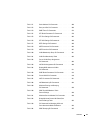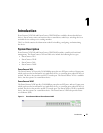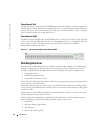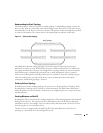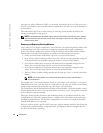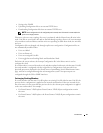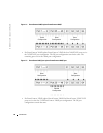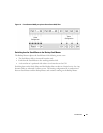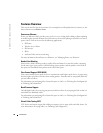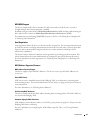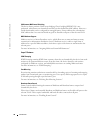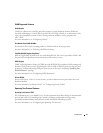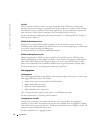
Introduction 25
• Saving to the FLASH
• Uploading Configuration files to an external TFTP Server
• Downloading Configuration files from an external TFTP Server
NOTE: Stack configuration for all configured ports is saved, even if the stack is reset and/or the
ports are no longer present.
Whenever a reboot occurs, topology discovery is performed, and the Master learns all units in the
stack. Unit IDs are saved in the unit and are learned through topology discovery. If a unit attempts
to boot without a selected Master, and the unit is not operating in stand-alone mode, the unit does
not boot.
Configuration files are changed only through explicit user configuration. Configuration files are
not automatically modified when:
• Units are Added
• Units are Removed
• Units are reassigned Unit IDs
• Units toggle between Stacking Mode and Stand-alone Mode
Each time the system reboots, the Startup Configuration file in the Master unit is used to
configure the stack.
If a stack member is removed from the stack, and then replaced with a unit with the same Unit ID,
the stack member is configured with the original device configuration. Only ports which are
physically present are displayed in the PowerConnect OpenManage Switch Administrator home
page, and can be configured through the web management system. Non-present ports are
configured through the CLI or SNMP interfaces.
Exchanging Stacking Members
If a stack member with the same Unit ID replaces an existing Unit ID with the same Unit ID, the
previous device configuration is applied to the inserted stack member. If the new inserted device
has either more or fewer ports than the previous device, the relevant port configuration is applied
to the new stack member. For example,
• If a PowerConnect 3424/P replaces PowerConnect 3424/P, all port configurations remain
the same.
• If a PowerConnect 3448/P replaces the PowerConnect 3448/P, all port configurations remain
the same.





